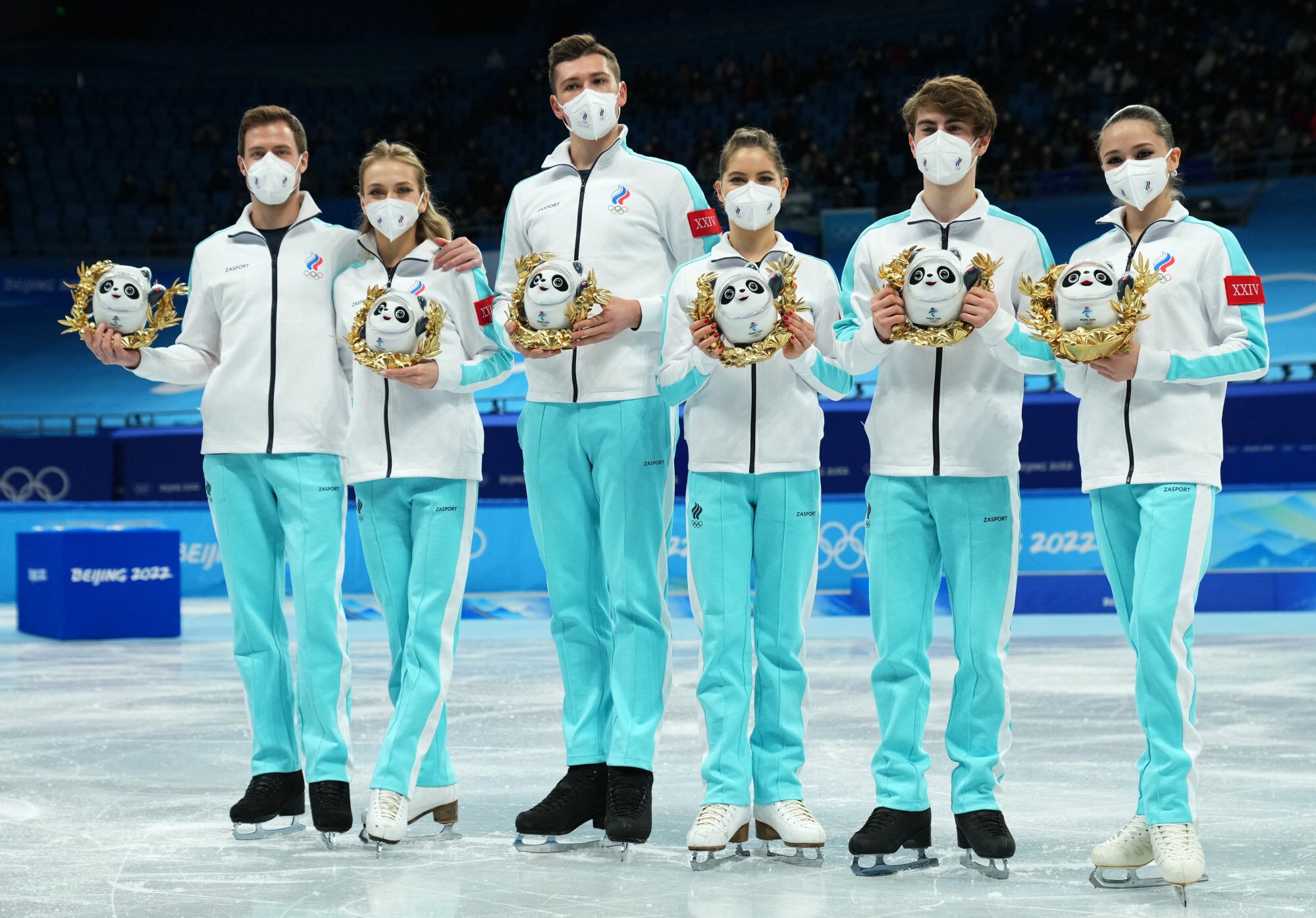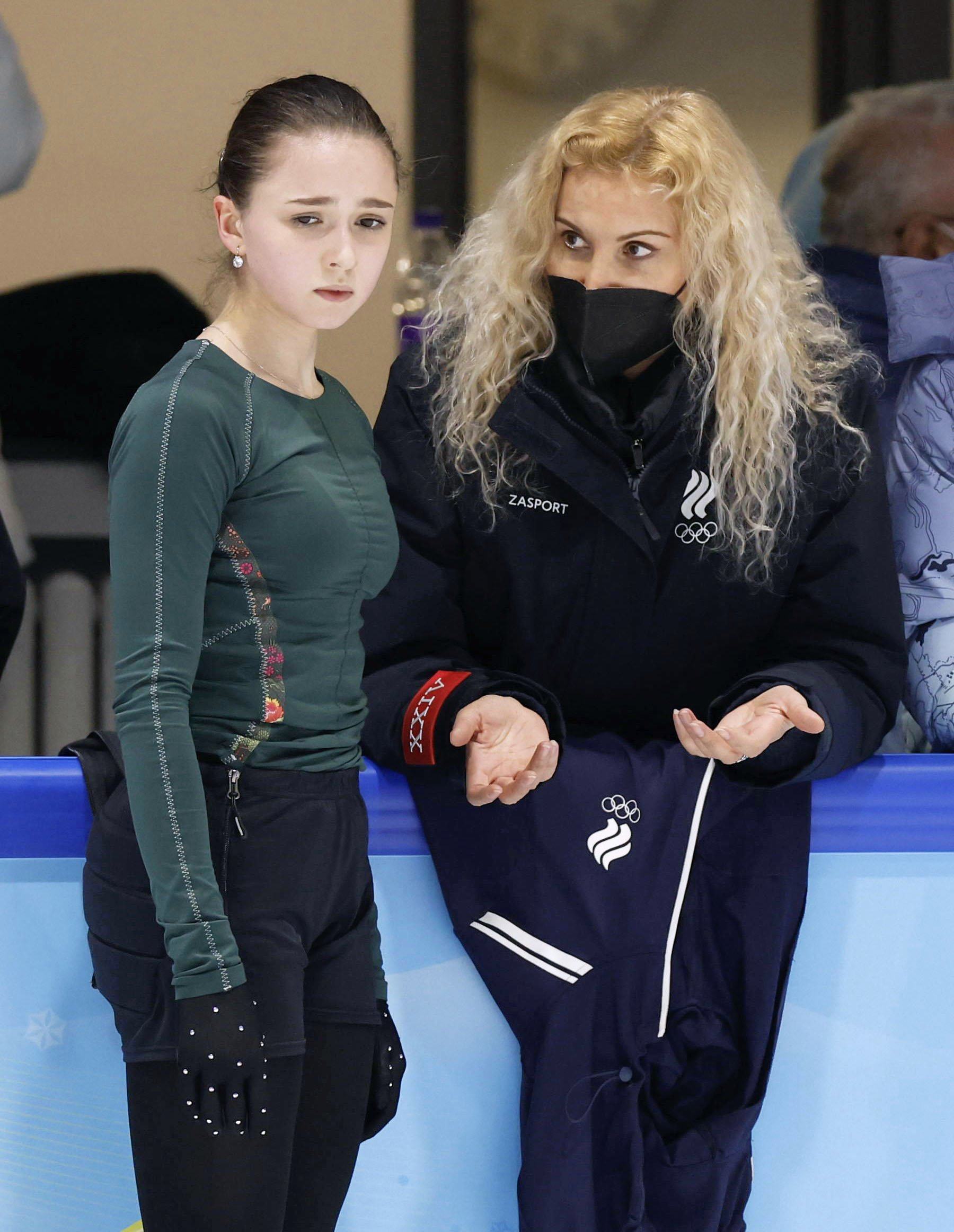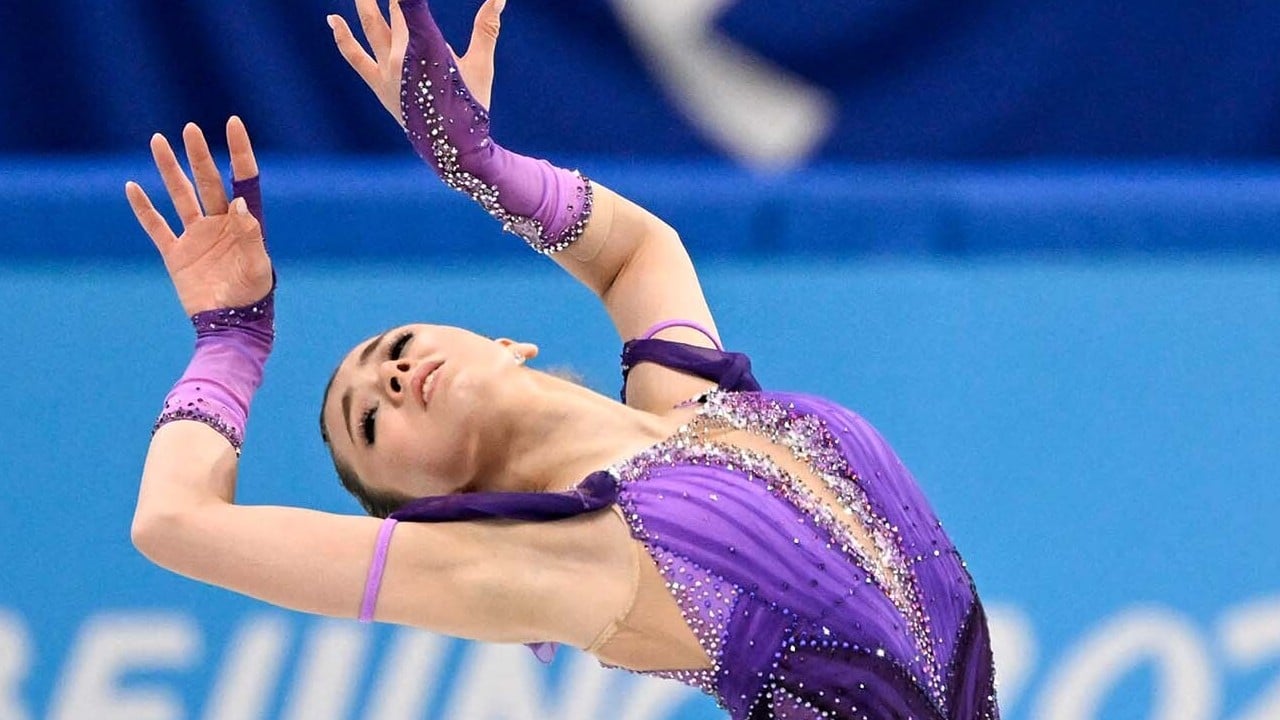
Explainer | Winter Olympics doping scandal: what is 15-year-old Russian figure skater Kamila Valieva accused of, and what will the Court of Arbitration for Sport have to decide?
- Here’s everything you need to know about doping scandal surrounding Beijing 2022 gold medallist
- Valieva set to learn her fate on Monday, as she hopes to compete in women’s single short programme
Russia’s 15-year-old skating prodigy Kamila Valieva is set to compete against 29 other athletes in the women’s figure skating individual short programme on Tuesday night at the Beijing Winter Olympics – but only if she is cleared at a drugs hearing on Sunday night.
A Russian Anti-Doping Agency (Rusada) disciplinary committee lifted a temporary suspension on Valieva on Wednesday, after she tested positive for a banned drug.
Now, the International Olympic Committee (IOC) and the World Anti-Doping Agency (Wada) are challenging the decision, which will be decided by the Court of Arbitration for Sport (CAS).
If a ban is imposed, it would be a big blow to the figure skater, who became the first woman ever to perform a quadruple jump at the Olympics, when she won gold with the Russian Olympic Committee (ROC) in the team event on Monday.
A hearing is scheduled for 8.30pm on Sunday, and her fate will remain undecided until a ruling is returned on Monday afternoon.

Why was Valieva suspended?
Valieva tested positive for trimetazidine, a banned substance.
Her sample was taken on December 25 at the Russian Figure Skating Championships. It was not until February 8, during the Beijing Games, that the positive result was reported, according to the International Testing Agency.
The agency is an independent body in charge of implementing anti-doping programmes for the Olympics and other major sporting events. It will lead the appeal before CAS on the IOC’s behalf.
Just a day before, Valieva helped ROC secure a team figure skating gold.
After Valieva’s failed drugs test came to light, Rusada provisionally suspended her with immediate effect. That meant she was barred from competing, training or taking part in any sports activity at the Olympics, in accordance with the IOC’s anti-doping rules.
Valieva appealed her provisional suspension at a Rusada disciplinary committee hearing on February 9. It was lifted, and she was not thrown out of the Games.

What’s the hearing about?
The hearing will ascertain whether Valieva’s suspension should have been lifted, the IOC has said, and whether a bigger investigation should be launched.
The World Anti-Doping Code, which standardises policies between sport organisations, was not applied correctly when Rusada decided to lift her suspension, Wada said.
The hearing is not about whether Valieva has violated anti-doping rules or whether Valieva has rights to have a secondary sample examined – that is for Rusada to further pursue.
The IOC and Wada decided to appeal the decision without waiting for a detailed decision from the Russian agency because Valieva is expected to compete again on Tuesday, in the women’s single short programme.

What is trimetazidine?
Trimetazidine, also known as TMZ, treats chest pain caused by insufficient blood flow to the heart.
The drug is deemed a stimulant by Wada because it could enhance the performance of athletes by allowing them to more efficiently produce energy from glucose, a type of sugar.
This is useful when oxygen supply to different parts of the body is limited during demanding physical activities.
What’s the Court of Arbitration for Sport?
CAS is often called the supreme court of the sporting world.
It is an independent body that resolves sporting disputes through arbitration, which allows a neutral third party to rule on a disagreement.
Parties to a case have agreed to be bound by the ruling of the arbitrator. Despite its name, CAS is not part of any country’s judicial system.
While it is headquartered in Lausanne, Switzerland, it has set up a bench in Beijing. CAS has always set up camp at the Games to handle cases, such as the one involving Valieva.
What if the IOC and Wada win the case?
Valieva will be banned from competing in the individual short programme if Wada and the IOC win the case. Such a result would be devastating for her and the ROC team because she is one of the favourites to clinch gold in Tuesday’s event.
The International Skating Union would then decide what course of action to take regarding the team gold medal she and her teammates won, after a full decision over whether she violated anti-doping rules has come about.

What are people saying about the doping scandal?
The Russian Olympic Committee said Valieva had taken a test during the Olympics that returned negative for banned substances.
Olympian and former US figure skater Adam Rippon also told American network NPR that he doubted Valieva knowingly doped, and that adults around her were to blame, but he did not present any evidence in the interview for his claim.
What’s next for the doping scandal?
Wada’s independent intelligence and investigations department will investigate Valieva’s coaches, doctors and other adults surrounding the athlete, Reuters reported, quoting a statement from the agency.
Rusada is also investigating her entourage because Valieva is a child.
The IOC has already sanctioned Russia for its state-led systemic doping programme. As a result, its country’s athletes are not representing their country at the Beijing Games, but the Russian Olympic Committee, under its initials “ROC”.


